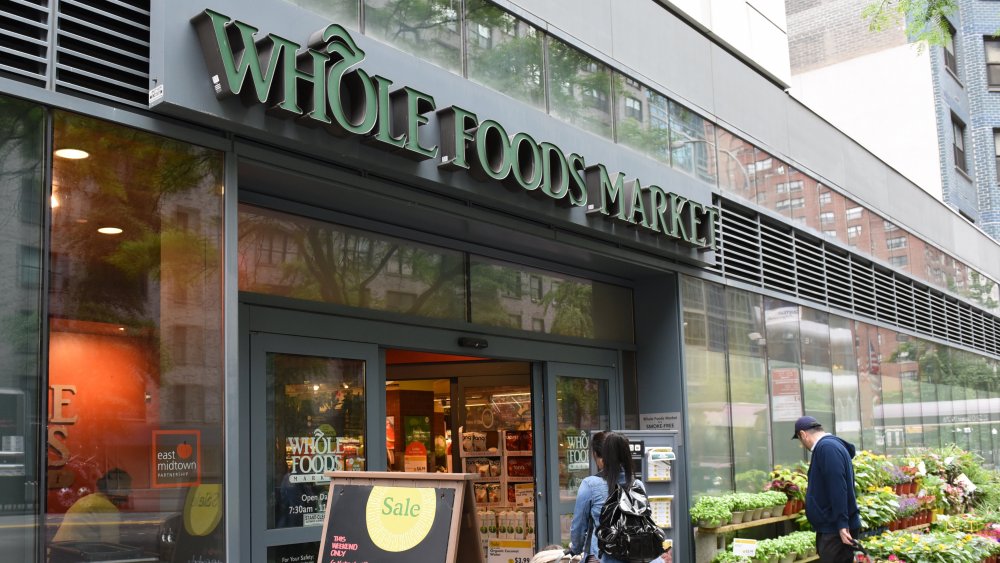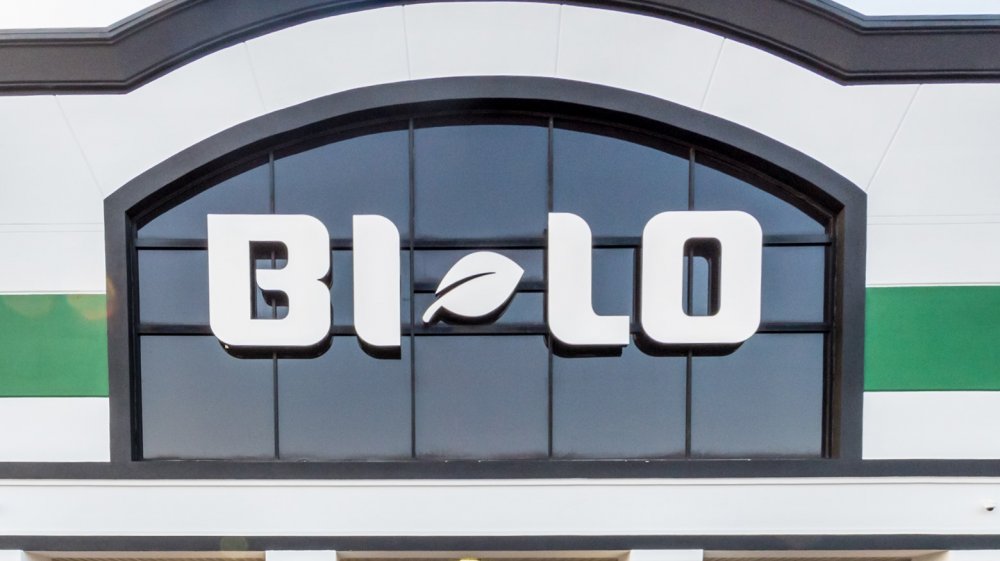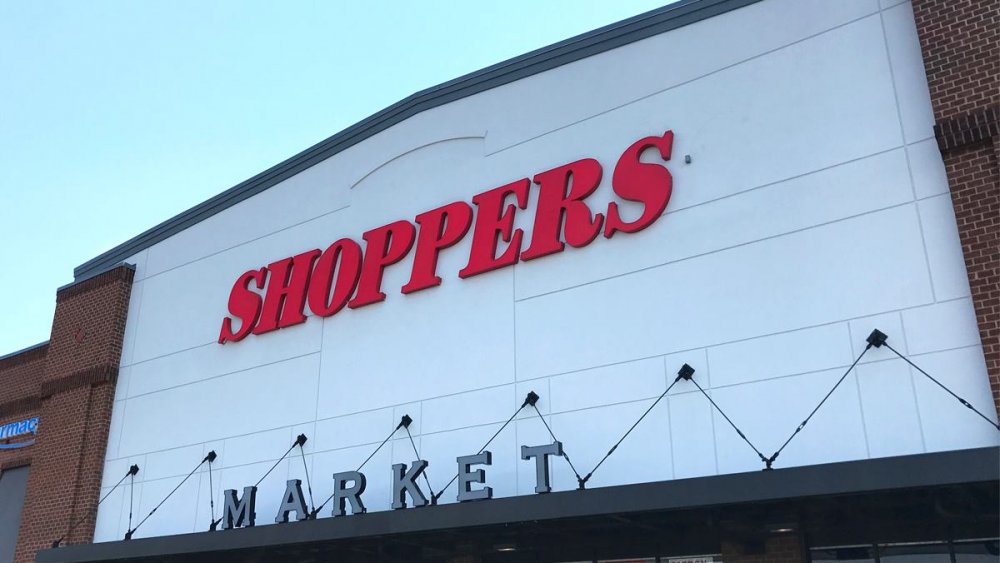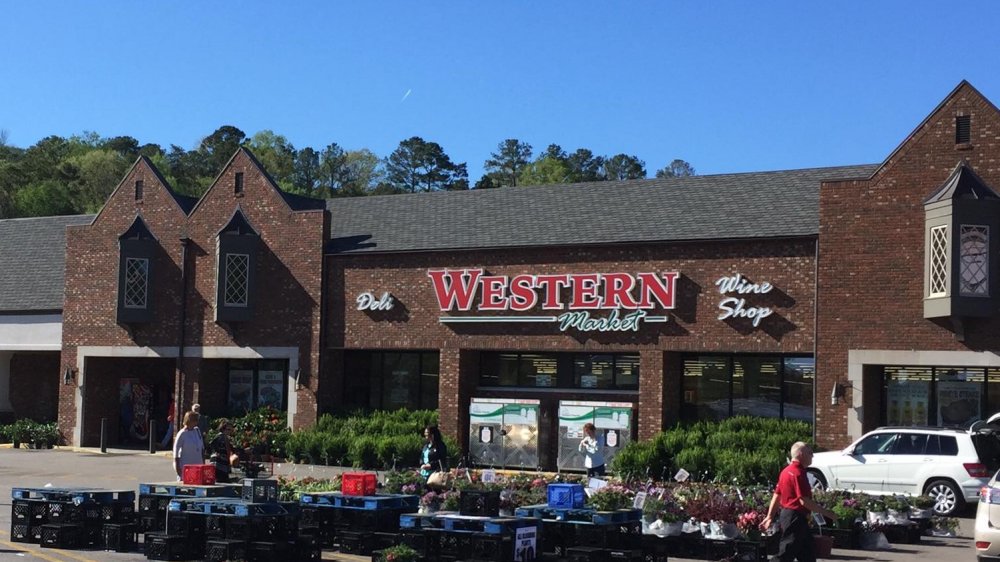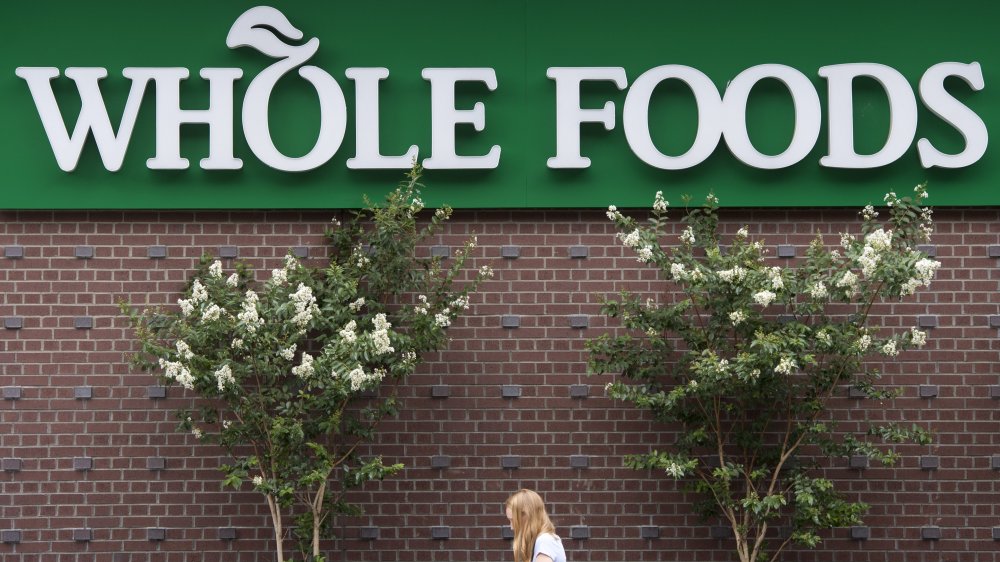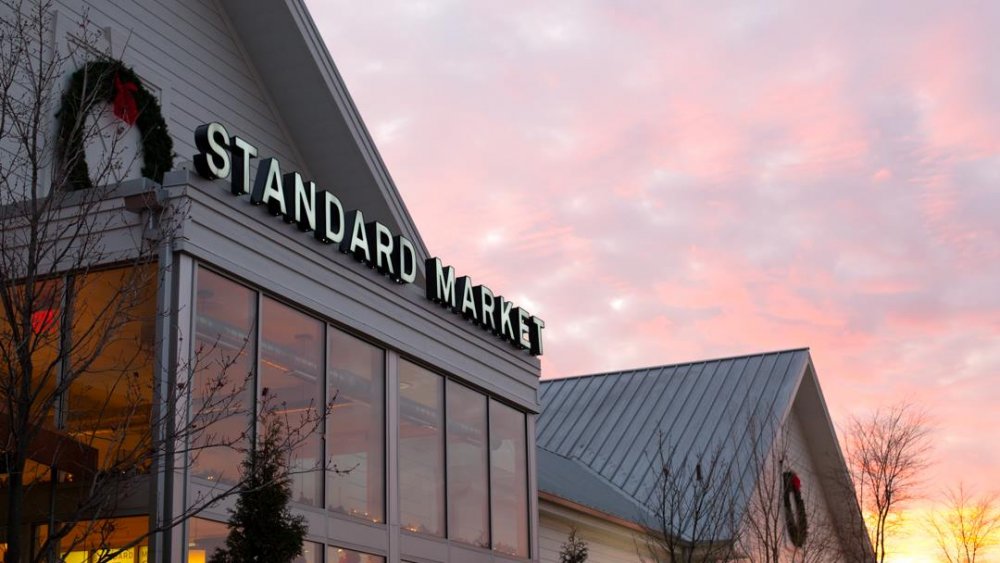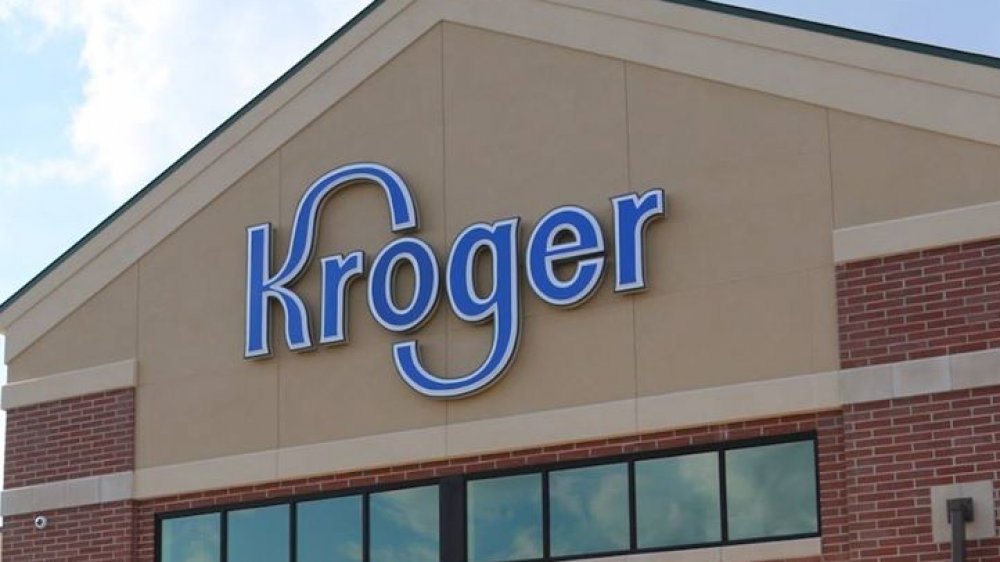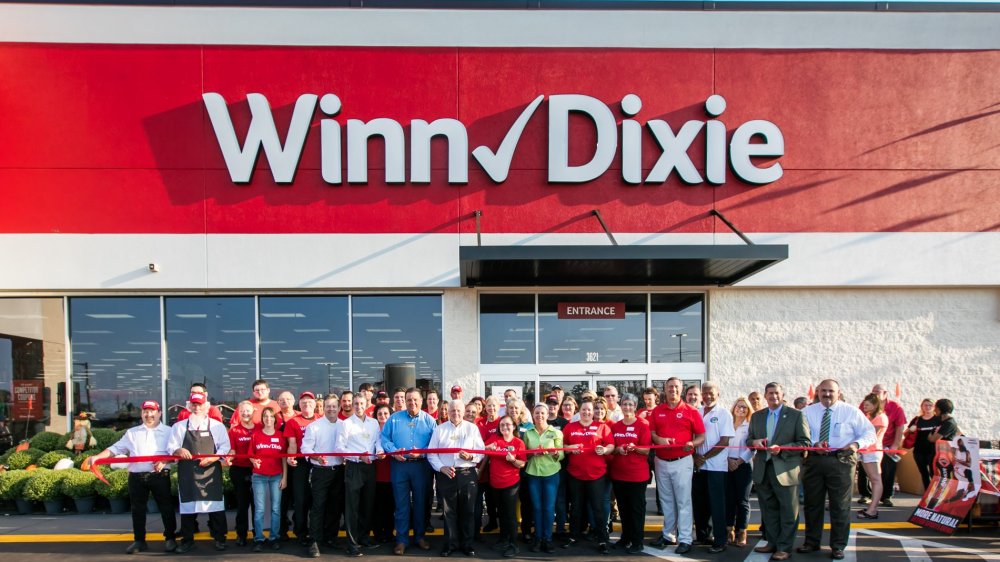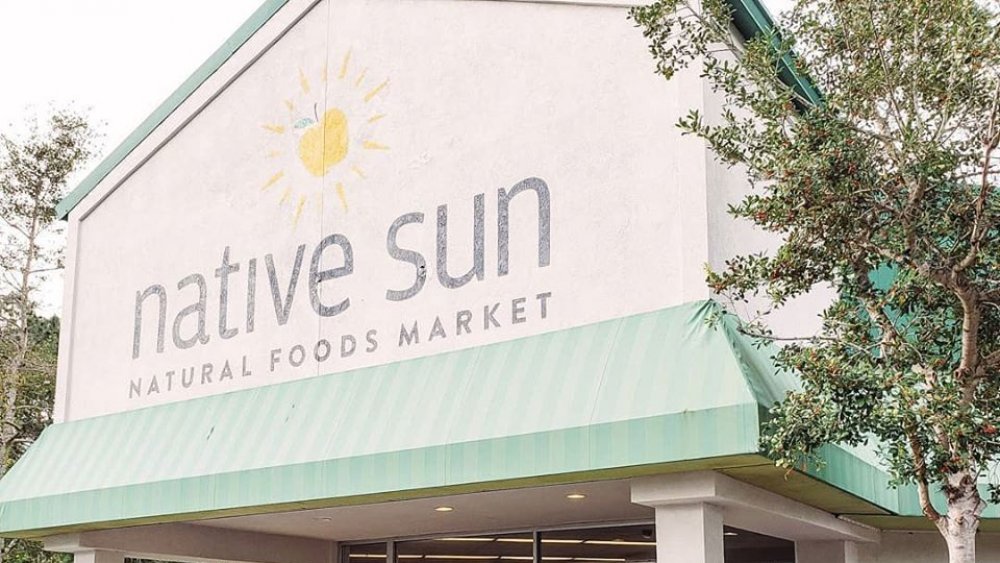Things Don't Look Good For These Grocery Stores In 2020
The grocery industry is an $800 billion dollar industry. A number that would seem large enough for supermarket chains to thrive, but with dozens of large and small chains grabbing for a piece of the pie, and prices to keep shelves stocked rising, profit margins are closing in.
Over the past several years, grocery stores have taken heightened measures to help ease their struggles. Whole Foods merged with Amazon, some filed for bankruptcy to try and make a come back, and others closed their doors all together.
Grocery chains are desperately trying to launch the next best thing to keep them ahead of the competition, but when Walmart, the giant that owns 22 percent of industry sales is struggling with gross profit margins, it may be hard for independent and specialty stores to stay afloat. Some stores are investing in store upgrades, loyalty programs, and the online marketplace to keep their doors open.
If you're a fan of any of these grocery stores, you may want to hit them up while you can because 2020 is showing some serious roadblocks coming their way.
BI-LO
BI-LO is no stranger to change. The South Carolina founded grocery chain first opened its doors in 1961. The Post and Courier reveals BI-LO filed for bankruptcy for the first time in 2009 before changing hands. Currently, BI-LO is part of Southeastern Grocers, a supermarket portfolio out of Jacksonville, Florida.
BI-LO's presence in Georgia, North Carolina, and South Carolina has been depleting over the past couple of years. In 2017, BI-LO's parent company closed 94 stores in their quest to reduce debt by $500 million.
In 2018, Southeastern Grocers threw in the towel, filing for Chapter 11 bankruptcy. That same year, Greenville Online says customers said goodbye to 22 more BI-LOs, and the closings have continued into 2019.
Southeastern Grocers Senior Manager of Communications says the company does not "take these decisions lightly" when it comes to closing underperforming stores, but it seems that the company has to allocate additional money elsewhere, so don't be surprised if more BI-LOs begin to disappear to save face.
To make matters worse, Insurance Journal leaked the outcome of a 2019 lawsuit involving Southeastern Grocers. The company failed to repair leaks of refrigerator coolants in a timely manner, and to keep and provide information about repairs — an oversight that ended up costing them a $300,000 civil penalty and about $4.2 million over a three year period to stay in compliance.
Unfortunately, it may be BI-LO that has to pay the price.
Shoppers Food and Pharmacy
Shoppers Food and Pharmacy has just about reached its expiration date.
With its parent company, United Natural Foods Inc. (UNFI), ready to focus solely on wholesale, it's eager to wash its hands of the Shoppers name. In late 2019, Supermarket News announced that 13 of the 43 Shoppers stores would be sold to multiple other grocery chains, and four other locations will soon close.
This sale will leave just 26 Shopper Foods left and Biz Journals says UNFI hopes to no longer be linked to the Shoppers Food name by spring of 2020 as CEO Steve Spinner is targeting a full exit from retail by then.
One of the grocery chains that will acquire six Shopper Foods locations is Lidl, a German-founded grocery chain currently growing roots in the United States. A spokesperson of the soon-to-be parent company says they "will be making significant investments in the redevelopment of these sites." The company also says they are planning grand reopenings by end of 2020, but there's no word yet on whether or not the Shoppers logo will be on storefront.
Western Supermarket
Western Supermarkets is a small independent grocery chain that houses only four stores in Birmingham, Alabama.
By 2020, the 70-year-old local favorite will be nothong more than a memory. Ken Hubbard, who took over ownership of the chain back in 1987, says that he and his team have "taken Western as far as we can. It's time to exit the business that has been my life's work."
Hubbard's exit means Birmingham residents will say goodbye to Western Market and hello to another familiar name, Publix. Publix bought two of the four locations of Western Market and one of them will open in 2019 under the GreenWise Market banner.
The long term success of Western Supermarkets came from the stores' commitment to their community. The local chain hosted the annual Wine and Food Festival in Birmingham. 2018 was the event's 29th year.
Though the closing of Western Supermarkets may be sad for shoppers and wine lovers, the good news is that locals could stock up on their favorite bottles during the stores reduction sales — discounts on wine were 20 percent. Cheap wine is a good excuse to stock the cart and say final goodbyes before Publix takes over.
Whole Foods
Whole Foods' competitive edge was being the go-to in the specialty foods and organic game. It was a game they played well, Forbes says, from 1980 until around 2010. That's when larger retail giants started to catch on. They swooped into the organic market with lower prices to offer customers. Whole Foods began to struggle. A glimmer of hope came in 2017 for the Texas based chain when Amazon bought Whole Foods for $13.7 billion.
Two years later, Amazon still hasn't seen the return they were hoping for. Even with extensive price cuts to try and bridge the gap with their competition, they are still falling short. Amazon incorporated three rounds of price cuts in 2019, and Whole Foods pricing still sits about 27 percent higher than bigger players like Kroger.
Online sales, though, are anything but disappointing with a 12.5 percent year over year sales jump. The e-commerce giant introduced an interesting new online shopping perk for Amazon Prime members, calling it the in-garage delivery program. That may seem invasive to some, but not for Amazon who also has services where groceries can be delivered both into the trunk of your car or inside your home if you're not there. All three seem like a really good way for Amazon to leap into 2020... with or without the Whole Foods name.
Standard Market Grocery
If you aren't from the Chicago area, chances are you haven't heard of Standard Market Grocery. The chef-driven market first opened in 2011 in Westmont, Illinios. Then, in 2014 they expanded to a second location in Naperville.
Customers enjoyed the new location for five years until the company decided that, "business conditions specific to that location" made it time for them to close down in 2019. Little did they know that decision would cause more than disappointment from customers.
In 2019, an employee from the Naperville location filed a class action lawsuit shortly after the store's March 30 closing date. The lawsuit states that Standard Market Grocery "unlawfully collected, used and stored sensitive biometric data." Don't worry, you're not the only one scratching your head right now.
Biometric data in this case are the employee's fingerprints. Fingerprints were used at the store for employees to clock in and out each day. Apparently, Standard Market Grocery is in breach of the Biometric Information Privacy Act for not properly informing employees in writing what would happen to their fingerprints once they leave the company.
In addition, the lawsuit is also slamming Standard Market for giving employees only three days notice of the store closing. A notice that by law should have been at least 60 days. It looks like Standard Market is going to have a lot on their plate in 2020.
Kroger
Kroger may be the largest traditional grocery store, but with competition from larger retailers like Walmart and Amazon, the company is starting to feel the heat. To stay ahead of the competition, Kroger started a restructuring plan in 2017 to help the Cincinnati-based chain reduce prices and increase in-store technology. Though it all sounds positive, the strategy has come at a high cost.
Heading in to 2020, Kroger is looking to cut hundreds of management jobs across their portfolio. The Cincinnati Enquirer (via KnoxNews) says that although Kroger officials wouldn't get down and dirty with the details, they did reveal that all 22 of Kroger's divisions across 35 states are closely examining management positions. These management jobs are well-paid and not union positions, which means they're easy to cut. With an extensive marketing campaign launching in 2020 surrounding their new "Fresh for Everyone" slogan, it shouldn't be a secret where these salaries will be allocated.
Kroger should tread lightly though, as the United Food and Commercial Workers have already started the threat of possible strikes. A move that in previous years has cost Kroger $1.5 billion in sales. That's not something Kroger needs right as they are about to see their restock efforts pay off... hopefully.
Winn-Dixie
When Southeastern Grocers pulled itself out of bankruptcy at the end of 2018, they had a plan. CEO Anthony Hucker said the company would focus on updating its existing stores.That same year they kept their promise, and by October of that year, 79 of Winn-Dixie's 377 stores had been remodeled.
Fast forward to 2019 and customers are still experiencing the new and improved Winn-Dixie. From an expanded selection of fruits and vegetables, an impressive bakery selection, and wider variety of beer and wine, it seems that Winn-Dixie is on track for success in 2020, but you can't always judge a book by it's cover.
Grocery Dive says that Southeastern Grocers is banking on the stores updates to help improve sales, but with larger retailers doing the same, that's a lot of pressure to put on the chain. Especially when its locations are saturated with competitors like Aldi, Publix, and Walmart.
Early in 2019, Southeastern Grocers was still closing stores, and Florida said goodbye to seven Winn-Dixie locations. Though it's much less than the 100 closed in 2018, it still means the stores are underperforming. Unless Winn-Dixie's parent company can find a way to emerge from the shadows of their larger competitors, it may have a hard time keeping up in 2020.
Native Sun Natural Foods
Native Sun Natural Foods opened its doors during the era when all natural and organic wasn't easily accessible. Aaron Gottlieb was the owner of all three Native Sun locations in Jacksonville, Florida, and says that during his time heading up the chain that he "worked closely with manufacturers to challenge their ingredient integrity."
A shift in demand for organic and all natural foods was a blessing for Gottlieb when Native Sun first opened, but in 2019 became a curse.
With nine new specialty stores opening in the Jacksonville region, it was too hard to keep up. Especially when those specialty stores were the natural food arms of Kroger and Publix. Two of Kroger's specialty food store Lucky's Natural Foods opened in 2019, and Publix is eyeing the opening of its GreenWise store.
Gottlieb says that with specialty foods now being so easily accessible that Native Sun just "didn't have a deep enough well to keep us going." Though the chain is sad to have closed its doors after 23 years, they still firmly believe that local businesses are the heart of any community.
That is why going into 2020 they will be trying something new in the form of a pop-up test kitchen. Though Gottlieb says the overwhelming support from the community has him toying with the idea of opening back up one of Native Sun's three stores in 2020, it will be hard to compete with the new, much larger chains that have come in.
Stop & Shop
In April of 2019, Stop & Shop faced off against thousands of its employees. Unhappy with contract negotiations, Stop & Shop employees walked off the job and participated in an 11-day strike.
Burt Flickinger, managing director of Strategic Resource Group said he had "never seen more effective picketing." About 90 to 95 percent of customers stayed away from the Massachusetts-based store, and not all of them came back when it was over. Sales lost during the strike and recovery period totaled $345 million and the grocery chain's parent company, Ahold Delhaize, was still seeing remnants of the strike throughout the remainder of the year.
The loss of sales doesn't seem to have stopped Ahold Delhaize from expanding its footprint. They just announced a $480 million investment to bring a distribution center to Connecticut. It's a move they say will save them about a million dollars a year, but unless they can keep their employees happy, that cost savings won't do much good. If another strike occurs in 2020, Ahold Delhaize can wash their hands of that extra million in their pockets.
